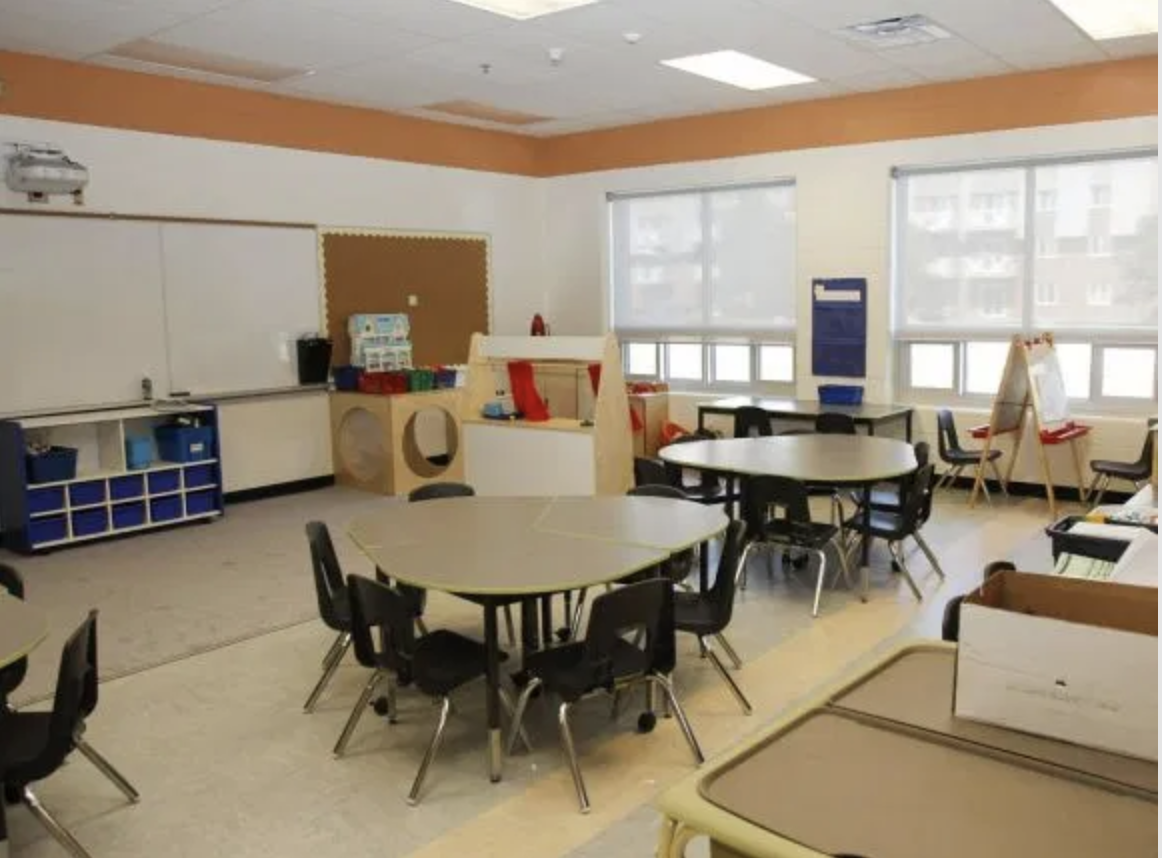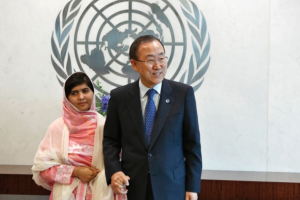Published in The Province (Vancouver, BC)
October 9, 2019
Since 2013, the province has subsidized private schools to the tune of $2.6 billion. The subsidies for 2018-19 alone were $426 million, and projections for this school year are $436 million. Julia McKay / The Whig-Standard
By Sandra Mathison
Opinion: With a public system still reeling from more than 15 years of cuts by the previous government, there is no excuse for funnelling billions of dollars to private schools.
As the B.C. education ministry rethinks how to fully and adequately fund the province’s schools, at the top of their list should be privatizing private schools by discontinuing public subsidies to independent schools.
Since 2013, the province has subsidized private schools to the tune of $2.6 billion. The subsidies for 2018-19 alone were $426 million, and projections for this school year are $436 million.
These subsidies to private schools have increased at an astronomical rate: funding increases (adjusted for inflation) to private schools have increased by 122.8 per cent since 2000-01, compared to a 15.9-per-cent increase in funding to public schools during this same period.
According to recent surveys by the Institute for Public Education, CUPE B.C. and the B.C. Humanist Association, most British Columbians believe public funding of private schools needs to end. In a poll that Insights West conducted for us in May, four in five British Columbians (78 per cent) oppose providing taxpayer funds for elite private schools. Sixty-nine per cent of British Columbians oppose funding to faith-based schools.
Let private schools be private, and let them deserve the label “independent schools.”
Private schools cost taxpayers by direct taxpayer-supported subsidies, but also by exemptions from paying property taxes, numerous personal tax benefits for individuals, and collecting large sums of tax-deductible donations.
Private schools also cost B.C. in non-economic ways. Faith-based schools are allowed to ignore human-rights laws and discriminate against employees based on marital status or sexual orientation. Our poll shows that few British Columbians are aware that faith-based schools are exempted from the B.C. Human Rights Code, but once they were aware of this, 81 per cent of respondents did not believe they should be allowed this exemption.
Let private schools be private, and let them deserve the label “independent schools.”
Private school admission processes segregate students by class and/or beliefs, rejecting students who don’t “fit” their values. These schools are therefore isolating students from peers who are not like them. Many B.C. taxpayers’ children would not be admitted to these private schools — because they can’t afford them, do not have academic credentials, or they are not suitable given the school’s philosophy.
Private schools reject the idea that schools ought to be about equity, about providing an education for all students regardless of their individual attributes.
If the education ministry needs a plan, they could immediately end subsidies to elite “Group 2” schools, those spending more per student than public schools and charging significant tuition fees. These are schools such as St. George’s in Vancouver and Shawnigan Lake on Vancouver Island.
Then they could phase out subsidies to faith-based schools over a short period of time, say two to three years.
The ministry should review private schools that serve needs not currently well met by the public schools (possibly, Indigenous schools and programs for students with special needs) and work toward integrating those schools/programs into the public education system. They should ensure there is sufficient funding provided to public schools to meet those needs.
And at the same time, tax exemptions that diminish revenue that could support public education need to change.
With a public school system still reeling from more than 15 years of cuts by the previous government, and students with special needs bearing the brunt of the underfunding, there is no excuse for funnelling billions of dollars to private schools. That money should be allocated to the public school system where it can help every child achieve their fullest potential.
Sandra Mathison is the executive director of the Institute for Public Education B.C., a professor of education at the University of B.C., and co-director of the Institute for Critical Education.

 Follow
Follow

Sandra Mathison: Privatizing private schools should top list of funding changes
Published in The Province (Vancouver, BC)
October 9, 2019
Since 2013, the province has subsidized private schools to the tune of $2.6 billion. The subsidies for 2018-19 alone were $426 million, and projections for this school year are $436 million. Julia McKay / The Whig-Standard
Privatizing private schools should top list of funding changes
By Sandra Mathison
Opinion: With a public system still reeling from more than 15 years of cuts by the previous government, there is no excuse for funnelling billions of dollars to private schools.
As the B.C. education ministry rethinks how to fully and adequately fund the province’s schools, at the top of their list should be privatizing private schools by discontinuing public subsidies to independent schools.
Since 2013, the province has subsidized private schools to the tune of $2.6 billion. The subsidies for 2018-19 alone were $426 million, and projections for this school year are $436 million.
These subsidies to private schools have increased at an astronomical rate: funding increases (adjusted for inflation) to private schools have increased by 122.8 per cent since 2000-01, compared to a 15.9-per-cent increase in funding to public schools during this same period.
According to recent surveys by the Institute for Public Education, CUPE B.C. and the B.C. Humanist Association, most British Columbians believe public funding of private schools needs to end. In a poll that Insights West conducted for us in May, four in five British Columbians (78 per cent) oppose providing taxpayer funds for elite private schools. Sixty-nine per cent of British Columbians oppose funding to faith-based schools.
Let private schools be private, and let them deserve the label “independent schools.”
Private schools cost taxpayers by direct taxpayer-supported subsidies, but also by exemptions from paying property taxes, numerous personal tax benefits for individuals, and collecting large sums of tax-deductible donations.
Private schools also cost B.C. in non-economic ways. Faith-based schools are allowed to ignore human-rights laws and discriminate against employees based on marital status or sexual orientation. Our poll shows that few British Columbians are aware that faith-based schools are exempted from the B.C. Human Rights Code, but once they were aware of this, 81 per cent of respondents did not believe they should be allowed this exemption.
Private school admission processes segregate students by class and/or beliefs, rejecting students who don’t “fit” their values. These schools are therefore isolating students from peers who are not like them. Many B.C. taxpayers’ children would not be admitted to these private schools — because they can’t afford them, do not have academic credentials, or they are not suitable given the school’s philosophy.
Private schools reject the idea that schools ought to be about equity, about providing an education for all students regardless of their individual attributes.
If the education ministry needs a plan, they could immediately end subsidies to elite “Group 2” schools, those spending more per student than public schools and charging significant tuition fees. These are schools such as St. George’s in Vancouver and Shawnigan Lake on Vancouver Island.
Then they could phase out subsidies to faith-based schools over a short period of time, say two to three years.
The ministry should review private schools that serve needs not currently well met by the public schools (possibly, Indigenous schools and programs for students with special needs) and work toward integrating those schools/programs into the public education system. They should ensure there is sufficient funding provided to public schools to meet those needs.
And at the same time, tax exemptions that diminish revenue that could support public education need to change.
With a public school system still reeling from more than 15 years of cuts by the previous government, and students with special needs bearing the brunt of the underfunding, there is no excuse for funnelling billions of dollars to private schools. That money should be allocated to the public school system where it can help every child achieve their fullest potential.
Sandra Mathison is the executive director of the Institute for Public Education B.C., a professor of education at the University of B.C., and co-director of the Institute for Critical Education.
Leave a comment
Posted in BC Education, Budgets & Funding, Children & Youth, Commentary, Government
Tagged BCEd, BCPoli, British Columbia, Government, government budgets, ICES, independent schools, IPEBC, private schools, Privatization, public school funding, public schools, UBC